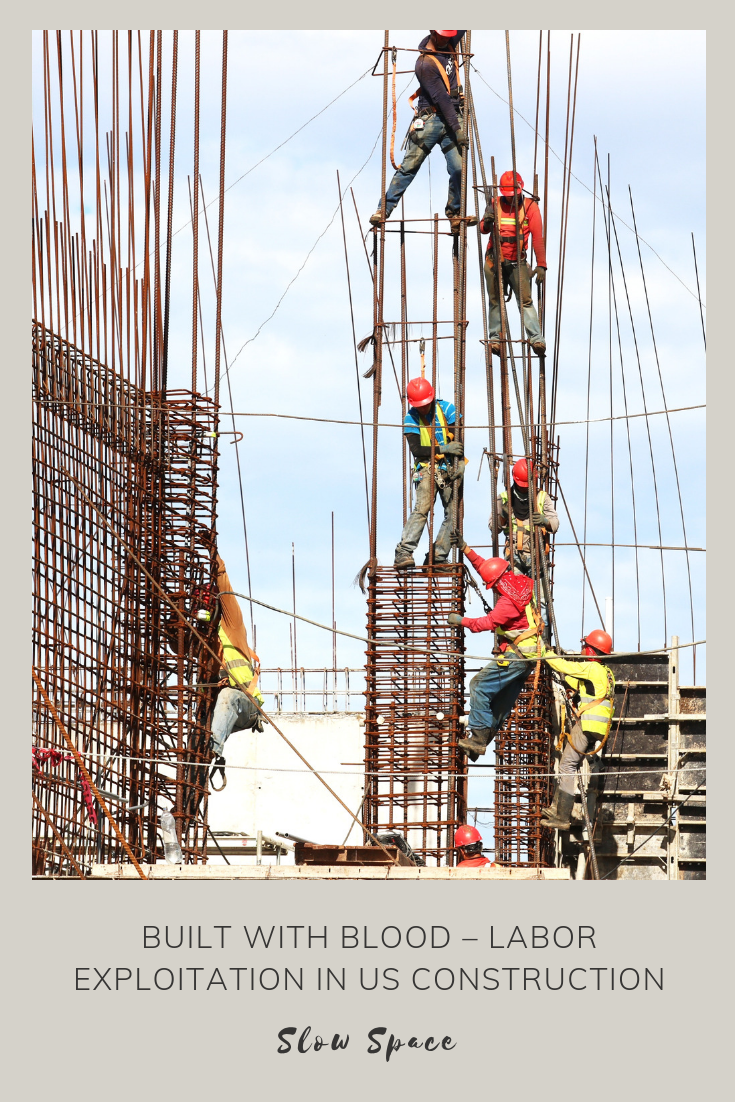I am Mette Aamodt. I’m an architect and founder of slowspace.org, which is a community of architects, designers, builders, artisans, activists, and lots of other people who care about our built environment. Together with my partner Andrew Plumb, we are starting a movement and we call it Slow Space. It is slow food for the built environment, and we have a manifesto. “Our world is covered in junkspace: bad buildings that are ugly, poorly designed, and unpleasant to be in, composed of cheap toxic materials that make you and the planet sick, and built by unskilled workers that are exploited, enslaved and endangered on the job. Every day more of these buildings go up, but we say, ‘Enough is enough.’ The Slow Space Movement aims to end the mindless proliferation of junkspace, to educate the public on the physical and psychological dangers and to inspire architects, designers, builders and artisans to stand up for buildings that are good, clean and fair.”
In today’s video, I’m going to talk about the issue of fairness in the construction industry and I’m going to tell you the story of Luis. This is a true story. It was reported in The Boston Globe by Beth Healy and Meg Woolhouse in September, 2016. Luis was a 15 year old boy originally from Ecuador and living in Brockton, Massachusetts, attending high school there. One summer a couple of years ago, he took a summer job for a roofing company to make some extra money for his family. The job was in Maine. He was working on a house in Portland helping to fasten roofing shingles.
One day he fell, and he tumbled down two stories and he severely shattered his leg. His employer did not call an ambulance. Instead, a coworker transported him 75 miles across state lines in the back of an old construction van to a Massachusetts hospital where he received emergency care. Luis was in severe pain. I don’t know how long it took them to get back to Massachusetts, but 75 miles in traffic takes a long time in these parts. He said, “I couldn’t breathe, much less talk. It’s pain you don’t forget.” The general contractor on the job said it wasn’t his responsibility because Luis was being paid by a subcontractor by the name of Force Construction. The JC had run regular background checks on Force and had confirmed at the time that they hired him that they had liability insurance and Workers’ Comp.
Luis was actually being paid by another subcontractor called Twin Pines Construction and this was a company owned by the same person that owned Force. His name was Fernandes. That summer, Fernandes had let his Workers’ Comp policy lapse a month before Luis fell off the roof. This was not an isolated incident, by the way on the jobs of Fernandes and his companies. He and his companies have been cited for more than 100 violations and have racked up $1.5 million in fines from OSHA. Luis did eventually receive the medical care that he needed. He was transferred to Boston Children’s Hospital and a rod was surgically placed in his femur. A workers’ advocate helped him navigate all of his medical appointments and paperwork, and a Medford lawyer helped him to sort through the tree of subcontractors until they finally found one who had insurance to cover him.
Luis is one of thousands of people, many undocumented, many children, who fill the need for cheap labor in Boston’s booming construction industry. They hold slabs of sheetrock and climb rooftops and dusty scaffolds, doing often dangerous work for contractors looking for cheap labor. They’re not on the books. They’re paid illegally in cash and for much less than the prevailing wage. The workers advocate who helped Luis said this is not about catching a few bad apples. We have evolved a system for providing subsidized labor to build our houses and it’s based on the vulnerability of the workforce.
Luckily, at least in the US, we have laws aimed at preventing this type of thing, but enforcement is difficult and there are many ways to get around it. For example, many contractors would prefer to just pay the fines rather than to change their ways. Everyone complains about the cost of construction, but actually the true cost is not even being counted. If you take the example of Luis, his suffering subsidized the cost of the roofing job on that project.
Many prefer to look the other way and I’ve been guilty of that in the past, but this is an issue we want to bring into the light. If you care about these issues, if this is something that’s important to you, that you’re interested in, and you care about good, clean and fair buildings for all, then please join us by subscribing to our mailing list at slowspace.org and/or liking us on our Facebook page. Thank you. I look forward to seeing you there.






